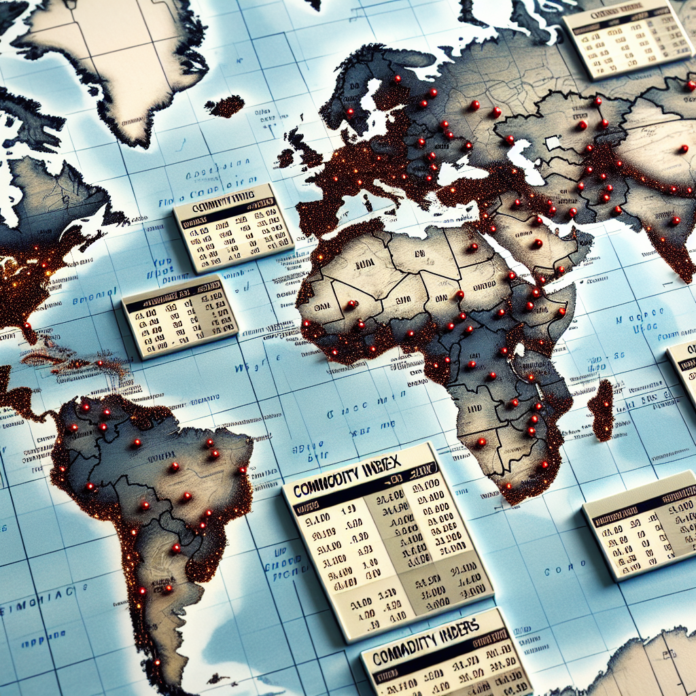Commodity indices, which track the prices of a basket of commodities, are essential tools for investors to gain exposure to raw materials such as oil, metals, and agricultural products. However, the stability and predictability of these indices can be significantly influenced by geopolitical events, which often have the power to cause volatility in commodity markets. Geopolitical risks range from wars and diplomatic tensions to trade agreements and sanctions, each with the potential to alter the supply-demand dynamics and, consequently, the pricing of commodities.
The Impact of Conflict on Energy and Metals
Wars and military conflicts can have immediate and profound effects on commodities, especially those related to energy and metals. For instance, oil and gas prices often spike during geopolitical tensions in key producing regions like the Middle East due to concerns over supply disruptions. Similarly, conflicts can affect the global supply of metals by hindering mining operations or by triggering sanctions against major metal exporters.
Trade Policies and Agreements
Trade policies and international agreements also play a pivotal role in shaping commodity indices. Tariffs, quotas, and trade deals can alter the flow of commodities across borders, impacting global supply chains and index performance. For example, agricultural commodity prices and indices can be sensitive to changes in trade policies between major food-exporting and importing nations.
Sanctions and Political Decisions
Economic sanctions imposed on countries due to political decisions can cause significant shifts in commodity indices. When a major commodity-exporting country faces international sanctions, the restricted supply of commodities like oil or rare earth elements can cause substantial price volatility, affecting both specific commodity prices and the broader indices that track them.
Monetary Policies and Currency Fluctuations
While not always directly related to geopolitical events, monetary policies can also influence commodity prices, as commodities are often priced in U.S. dollars. Central bank decisions that affect currency valuation can thus impact the purchasing power of commodity buyers and the revenue of commodity producers, leading to changes in commodity indices.
Climate Change and Environmental Policies
Increasingly, the geopolitical scene is being shaped by global responses to climate change, with environmental policies affecting the demand for certain commodities. For instance, initiatives aimed at reducing carbon emissions could decrease the demand for fossil fuels while boosting interest in renewable energy sources and ‘green’ commodities. This evolving landscape is continuously reflected in the pricing and composition of commodity indices.
Conclusion: Staying Ahead in a Volatile Market
For investors, keeping a close eye on geopolitical events is crucial when navigating commodity indices. The complexities of global politics can quickly shift market sentiment and alter the fundamentals driving commodity prices. By understanding and anticipating the potential impacts of geopolitical factors, market participants can better position themselves to respond to the associated risks and opportunities in commodity investing.
For further exploration of the relationship between geopolitical events and commodity markets:




 AGF-B.CO
AGF-B.CO